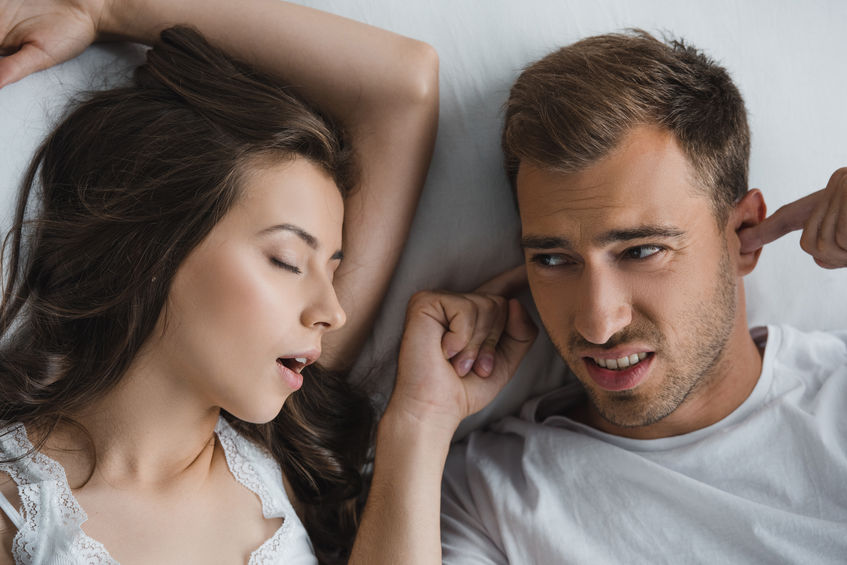When Noisy Sleeping Is A Problem
Around 18 million adults in the US suffer from some form of sleep apnea. In many cases, patients are unaware of having the disease. However, getting a proper diagnosis is essential for the prevention of many other chronic health conditions. While snoring alone doesn’t necessarily mean sleep apnea is to blame, being a noisy sleeper is one of the signs to note.
What is sleep apnea?
Chronic obstructive sleep apnea (OSA) is a disorder in which a person experiences breathing interruptions during sleep. OSA occurs when the muscles in the back of the throat fail to keep the airway open. While snoring alone isn’t life-threatening, a person who has OSA is at risk for multiple health conditions. Some of the most concerning of these include heart disease, hypertension, and stroke.
Snoring: one of many signs
Snoring alone does not necessarily mean a person has obstructive sleep apnea. However, snoring can be a symptom of the condition. A person may want to consider undergoing a sleep test when multiple signs of OSA are present. Some of these signs include:
- Feeling sleep-deprived, even after a full night of rest
- Difficulty concentrating
- Depression
- Falling asleep at work
- Feelings of anxiousness or irritability
Who is at risk?
Anyone can develop sleep apnea. However, some factors can put people at higher risk. Being overweight, having a small upper airway, a recessed chin, or small jaw are all risk factors. Additionally, men who have a neck size larger than 17 inches and women with a neck size larger than 16 inches are more likely to have OSA. Smoking, alcohol use, and being over age 40 all increase risk.
Treatment options
In most cases, apnea is treated with a continuous positive airway pressure (CPAP) machine. This highly-effective treatment involves a mask that fits over the nose and mouth and keeps the airway open during sleep. A physician may also recommend some lifestyle changes, such as losing weight, quitting smoking, or changing sleep position.
Tips to sleep tight
For better rest, experts recommend following proper sleep hygiene guidelines. Create a consistent schedule by going to bed and getting up at the same time every day. People can also benefit from having a bedtime routine that includes the same nightly activities, such as reading a book, listening to soothing music, or taking a bath. Avoid consuming caffeine or alcohol within a few hours of bedtime. Additionally, keep the bedroom free of screens and use night mode to filter blue light on devices within a few hours of bedtime.
When to see an ENT
An ear, nose, and throat (ENT) specialist can order sleep studies to diagnose and treat sleep apnea. Patients who are consistently experiencing one or more of the symptoms of sleep apnea should make an appointment with an ENT for an evaluation. This specialist can provide more information about the condition and offer treatment options.



